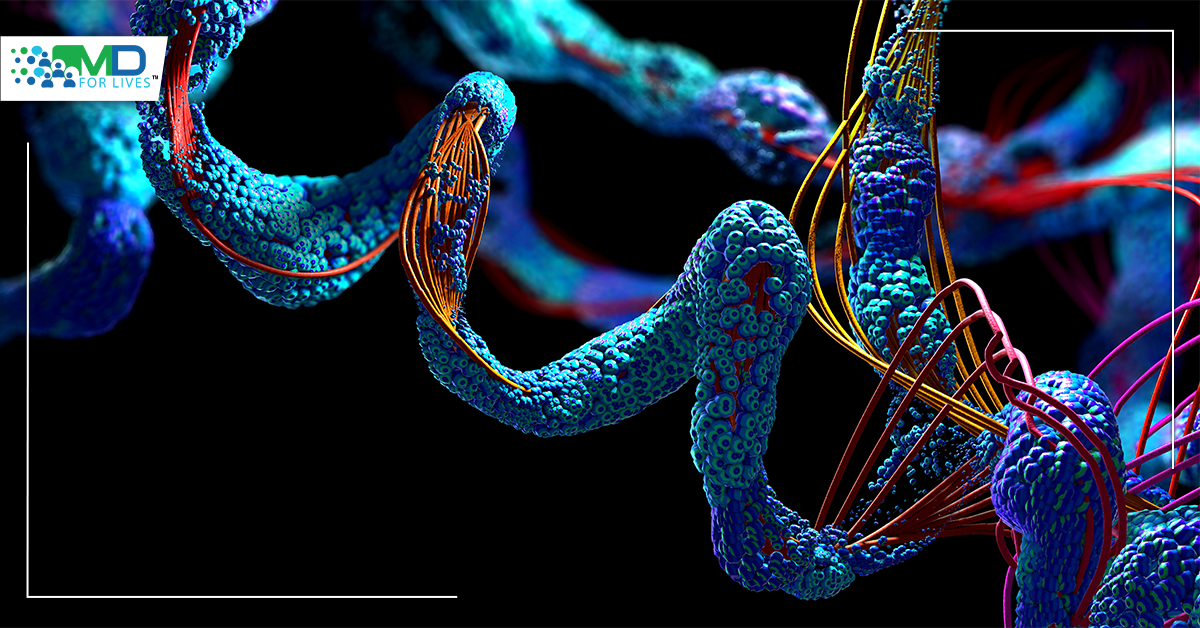Human beings are the most evolved organisms on the planet. Many of their tissues can continuously renew throughout life, like blood cells, lining of the gut, etc. On the other hand, organs like the heart cannot regenerate. Therefore, any damage caused by a heart condition is permanent and results in the weakening of the heart, known as heart failure (1).
Since a long time, Dr. Lawrence Lum, an Associate Professor of Cell Biology has been working on developing a cancer drug that targets the Wnt signaling molecules. These Wnt signaling molecules play an important role in tissue regeneration and frequently contribute to cancer (2). An enzyme known as porcupine (Porcn) is needed for the production of Wnt proteins in humans. The enzyme is named so because in absence of this gene the fruit fly embryo looks like a porcupine (1). Small molecules that disable the Wnt acyltransferase Porcn are candidate anticancer agents in clinical testing. For the study, researchers systematically assessed the effects of the Porcn inhibitor (WNT-974) on regeneration of different types of tissues so that they could recognize the undesired chemical effects that could restrain the therapeutic utility of such agents (1). During this process the researchers came across an unanticipated observation in the cardiac tissue, which showed that the number of dividing cardiomyocytes (heart muscle cells) had slightly increased (1). Thus, it was seen that porcupine inhibitors may be used as anticancer agents, but can also be of great use in regenerative medicine.
On the basis of these findings, a study was done on mice models. During this study, researchers induced heart attacks in mice and then treated them with a porcupine inhibitor. The study concluded that the heart’s ability to pump blood improved by nearly twofold in those treated with porcupine inhibitor as compared to untreated animals. (1)
The findings of this study were published online in Proceedings of the National Academy of Sciences.
According to Dr. Rhonda Bassel-Duby, who is the Professor of Molecular Biology and has been studying heart repair since a long time, improvement of heart function after a heart attack in mice by administering Wnt inhibitor is great news. Furthermore, it was seen that not only the heart’s pumping ability improved but also there was reduction in fibrosis in the hearts (1).
According to Dr. Lum, who is a Scholar in Medical Research, the fibrotic responses can be helpful in the short term but they overcome the heart’s ability to regenerate in the long run. This study reveals an agent that can hamper the fibrotic response, thereby improving healing process of the heart. Furthermore, the other benefit that was seen during these preliminary experiments was that the porcupine inhibitor has to be used for a short duration following a heart attack, thus the unpleasant side effects commonly caused by anti-cancer drugs could be avoided (1).
Credit: Dr. Rachita on behalf of Borderless Access
Copyright © 2016 BorderlessAccess
References:
- UT Southwestern Medical Center. “Cancer drug could promote regeneration of heart tissue.”
- Jesung Moon, Huanyu Zhou, Li-shu Zhang, Wei Tan, et al. Blockade to pathological remodeling of infarcted heart tissue using a porcupine antagonist. Proceedings of the National Academy of Sciences, 2017






